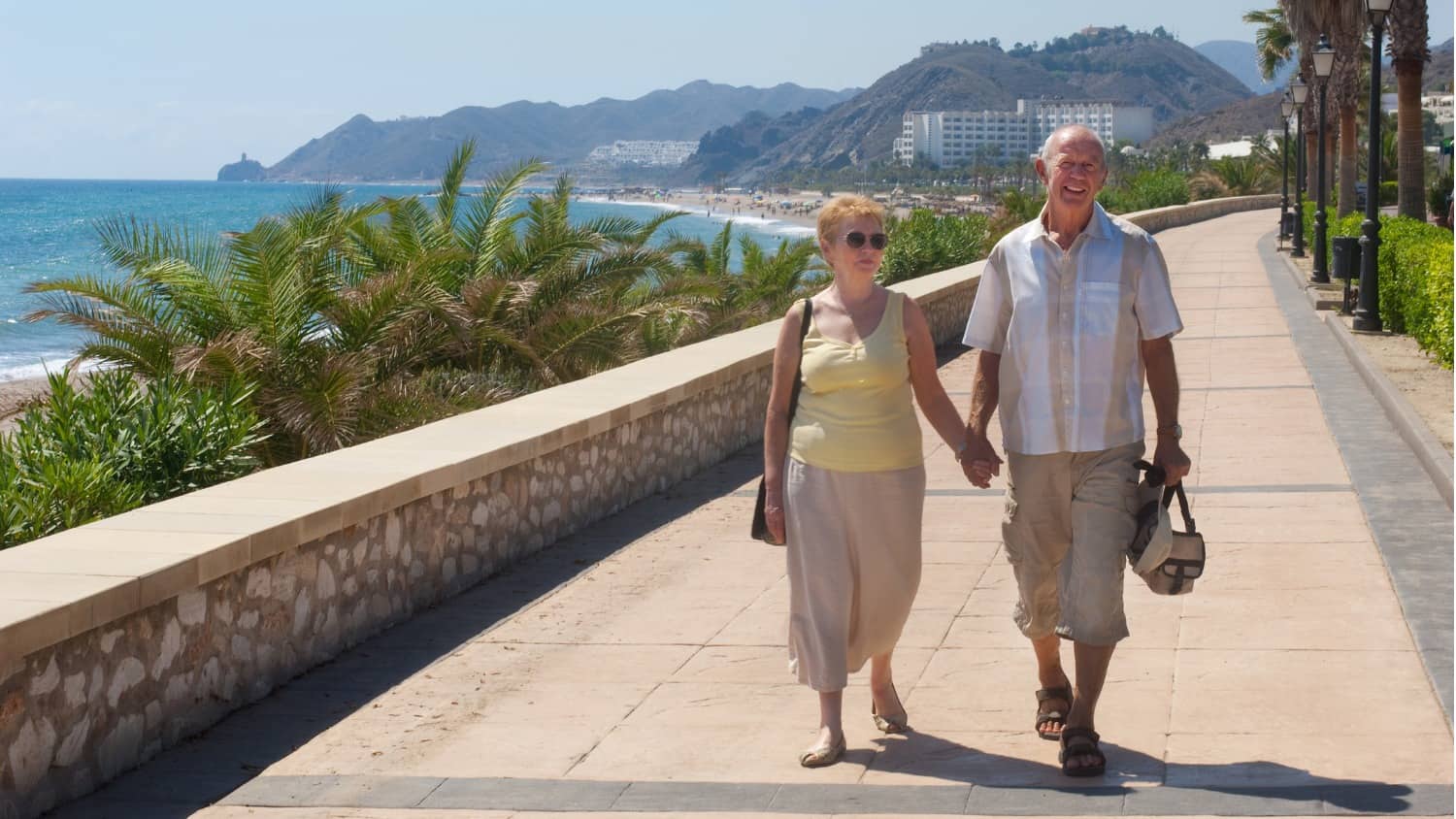
Could Living in a Cheaper Country Be the Right Asset Preservation Strategy for You?
In any economic downturn, and heaven knows we’ve seen our fill by this stage in life, it’s easy to anticipate that women will be among the hardest hit. The Covid-19 pandemic has been no exception. According to the U.S. Bureau of Labor Statistics, women have experienced the worst effects of the pandemic economic crisis.
According to AARP, during the first six months of the Covid-19 Pandemic, workers aged 55 and older were 17 percent more likely to lose their jobs than employees who were just a few years younger. That difference in unemployment rates translates into a staggering toll on the livelihoods of older adults. In every recession, it’s the older workers who lose their jobs first and regain them last.
In an admittedly snarky blog I wrote (and enjoyed writing) in 2017, Ten Dollars an Hour or Mexico, I wrote of my fatigue with admonishments and perky insinuations that making a living post 55 was simply a matter of attitude and creativity.
It would have been impossible to work any harder than I did searching for a decent job the years prior to that fateful day in 2014 when I walked into my CPA’s office with what remained of my investment portfolio and said, “I’m done. I’m moving to Mexico.” To my astonishment, she looked at my math and supported the decision.
More Common Than You Think
What also has surprised me over the years is just how many other women have done it as well. I talk to women in line at the airport (we kind of stand out), snowbirds, house sitters, widows who play cards together every Monday under the palapas, and seasonal house sitters.
One woman I know is building a house in Mexico at 72. These are single women you hardly ever read about in retiree magazines. The idea of expat life still clings to the pre-internet, pre-Amazon, pre-Uber images which are quite different from expat life today.
What hasn’t changed are the savings. In Mexico, I live extremely well on about $1,500 a month. Doing this, I’ve managed to avoid taking early Social Security.
Not for Everyone
Is Mexico or another cheaper country for everyone? Of course not. The drawbacks are:
- The trips back and forth and the planning, like for any foreign travel, can be taxing.
- You will always have to deal with the language barrier to some degree.
- Certain creature comforts, like central air conditioning and garbage disposals, are lacking.
- Cooking is an adjustment as availability is vastly different (that’s why I wrote a cookbook, The Lazy Expat: Healthy Recipes That Translate in Mexico)
- While cheaper countries popular among expats are safe, you have to pay more attention to home security. Cheaper countries are poorer countries with all that goes with that.
- Anyone who’s traveled to Mexico will tell you that at times the conditions are less than pristine. One of the advantages of part-time expat life is that every year you can return home and take in its unique luxuries periodically (which now you will be able to afford). Some single women have apartments or homes here and live for a season each year with their adult children to stay connected.
- Any time you move to a new city, whether to another American city in retirement or another country, there will be a more solitary period while you make the effort necessary to form friendships and build supportive relationships within available expat groups.
Testing the Waters in a New Culture
A friend of mine always tells me she’s going to retire to France. I don’t remember her ever mentioning having been there. Every year I am contacted by women who tell me they want to move to Mexico as soon as they… learn Spanish, talk to their friends, sell their house, etc. The biggest mistake I see people making is over-thinking the first step – a long-term, non-vacation stay.
Obviously, moving to a new country is a huge decision. Deciding to make a long-term visit is not. If you are wondering if a cheaper country might be for you, the most logical and least stressful step is to focus only on information necessary to plan a safe long-term stay (several months) in the city that interests you most, and renting a centrally located apartment with a kitchen and living area.
Ignore all the rest. Skip the articles on resident visa requirements, buying a home, and owning a car. Those are not the decisions to make at this point and will only serve to paralyze you.
How to Pick Lodging in a Prospective Expat Town
When you decide on the city to explore, invest in staying in a more expensive tourist neighborhood, where you are most likely to run into expats. I recommend small bed and breakfasts and places where an owner or host is a friendly American or Canadian and available to chat with you. You will pay more for these places, but it’s very important to feel safe and relaxed.
Don’t Treat Your Trip Like a Vacation
Don’t overtax yourself by playing tourist. Concentrate on performing the daily tasks you’d have to do if living there: grocery shopping, taking public transportation, going to the bank and having your prescriptions filled.
Call your friends at home often, both to feel connected and to practice all the ways to communicate from another country, such as Skype, WhatsApp, Facebook Messenger, and regular telephone calls. Practice what a real day would be like living in a foreign culture.
Tips for Your First Long-Term Stay
One of the biggest mistakes I made during my first months in Mexico was failing to recognize how distracted I was by my new environment. This is a period when expats in their first year have shared with me mishaps like lost credit cards and car break-ins.
It can be easy to get flustered when trying a new language. Plan to move through your days slowly and deliberately, conquering a major task or two a day.
Write everything down. Keep a journal and write down carefully and in full every name (with notes) contact information and addresses of those you meet. And carry that journal with you.
Find ample time to relax. Foreign countries can overwhelm you with new sights, smells, language, and color. You likely will need several hours a day just to process what you’re experiencing and the conversations you’re having. Bring a foldable yoga mat and meditate. Get plenty of sleep (in Mexico, take noise cancelling headphones, just in case.)
Visit off season. It’s critical that you get to know a place when it’s at its most uncomfortable if you plan on being there for months at a time or year round.
Do You Still Enjoy an Element of Adventure in Your Life?
The goal of a long-term stay is to decide how you handle being a foreigner, how well you like the country and its people, and how it feels to conduct day to day activities.
For me, living in a different country, with its frustrations and surprises, transforms even mundane daily routines into adventures while enabling me to maintain a high quality of life in retirement. A long-term stay is an easily accomplished, less overwhelming first step in determining if the life of an expat is the right life for you.
Let’s Have a Conversation:
Have you considered leaving your country and becoming an expat? Why? Where would you live if not in your home country? Why pick that new country to call your own? How would you proceed with your move?







I grew up in India and moved to US over 40 years ago. I retired before Covid and I had planned on spending winters in my home state in India. It is easier for me since I have been visiting the area every year or two. I am going to try this starting this year. My goal is to make my home state a base and travel to see parts of Asia. That will save me a lot of time and money traveling back and forth from US. Since I speak the local languages, know the culture, have family and a good rental place. I hope to enjoy this journey. Thanks for your article that confirms what I have been doing to plan this.
Hi. Where are you living in Mexico? Do you live in an apt? Can you walk to the stores? How do you handle medical care? Thank you. Rose
Kerry I am confused a bit. Are you a snowbird in Mexico? Your article speaks of you moving there but it seems you also keep a home in the US? I have read of people that sell everything and move to Portugal or Costa Rica but never about part time residency in those countries.
Do you keep company with fellow expats for the most part? I am not passing judgement , but when I read of the wealthy American enclaves in Costa Rica I cannot imagine what it must be like for the local population and if there is any kind of resentment.
Again, I am just curious. My ideal is to live part time in Sicily if I can figure out how to afford it. lol!